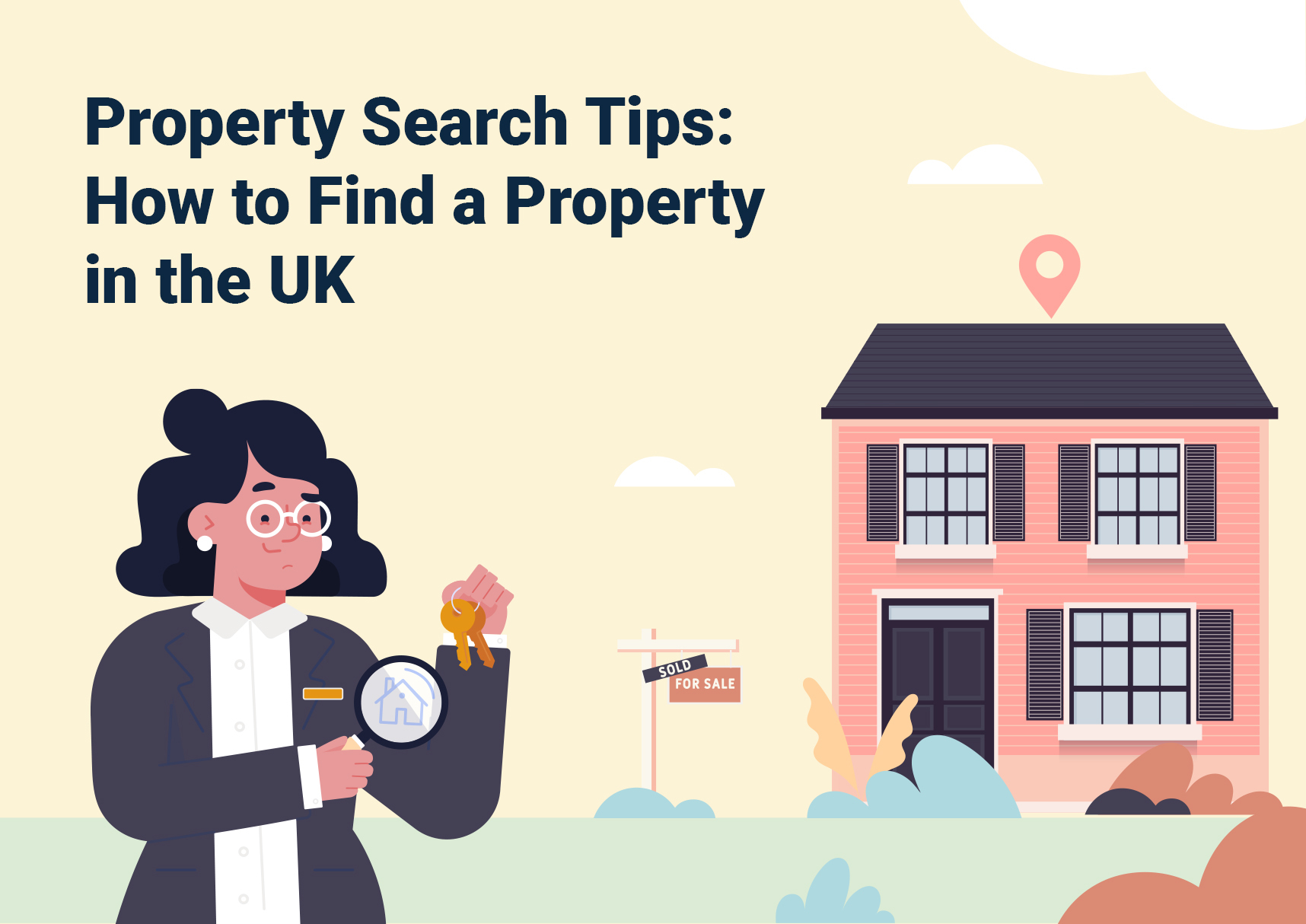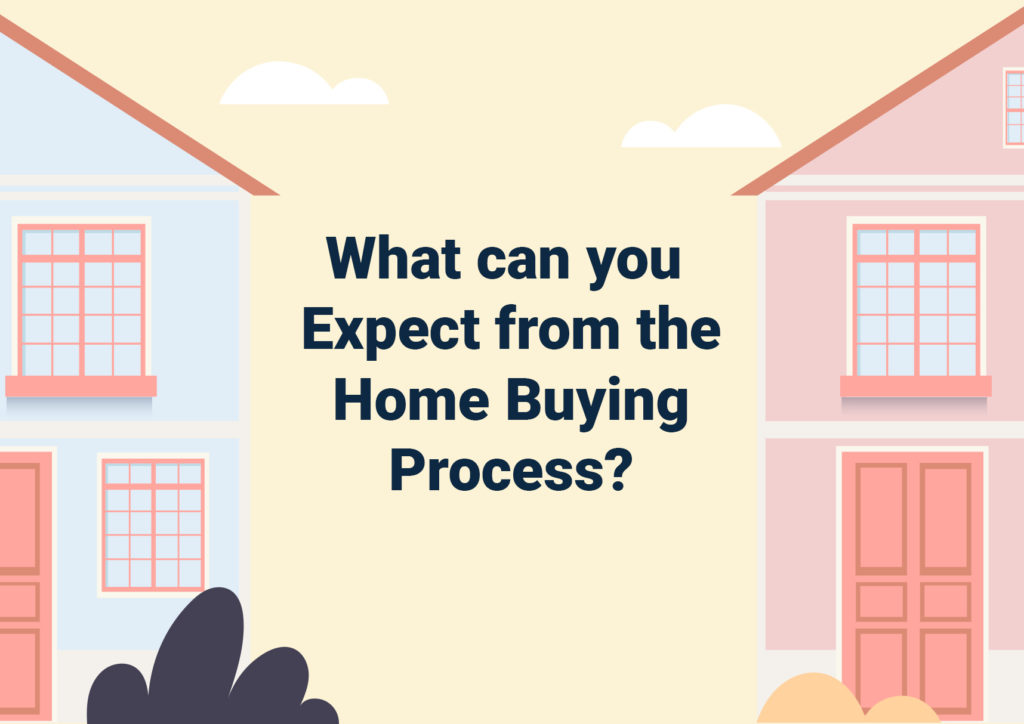Property Search Tips: How to Find a Property in the UK

In this article, we look at some tips for how to find a property in the UK, the most important factors to be aware of and how you can optimise your experience to make sure you get the most out of your investment and have a seamless property search.
Getting onto the property ladder or expanding your property portfolio is one of the most important financial decisions you will make.
Whether you’re a first-time buyer or looking to secure a second home as a rental property and investment, finding a property in the UK is not always as straightforward as it seems. With a little bit of research, you can avoid many of the pitfalls that even experienced property buyers may fall victim to.

What are the Best Websites for Property?
When beginning your property search, the most obvious thing to do is to search the internet, but what are the top UK property websites to start your search for a home?
Zoopla
Zoopla.co.uk allows you to track properties you’re interested in, find out how much your home is worth with an instant online estimate, use price estimates and trend reports to decide on the right time to move and read expert property-related tips. Zoopla.com also provides data on the average and historic prices of the properties you are interested in.
Right Move
RightMove.co.uk lets you search over 90,0000 properties for sale from estate agents and developers across the UK. The website makes it easy to compare properties on the market and provides listings on a Google map so you can easily see the location and the surrounding area.
OnTheMarket.com
Onthemarket.com offers potential buyers, sellers, landlords and tenants hundreds of thousands of homes for sale or rent across the UK. Listings include those from agents as well as home developers at different price points.
Searching online can give you a good insight into the types of property available and the average cost. Knowledge is power and as a buyer knowing the ballpark costs you have to work with can be advantageous when it comes to negotiating on the price with a seller.
How to Find a Property in the UK: House Search Tips
What are the top 10 things to look for when buying a house? Depending on your goals, the things you need to look out for as a property investor may vary. Below we’ve outlined some of the best pieces of advice whether you’re a first-time buyer or seasoned investor.
Chat to Your Local Estate Agent
While online property search websites are a great place to start, many homes are sold before they appear online. One way to find some of the hottest properties is through your local real estate agent who will inform you of properties available as soon as they hit the books.
By telling them the type of property you are looking for, your budget and the local vicinity you are interested in, they will be able to give you a realistic expectation on the frequency of properties that meet your criteria appearing on the market.
An estate agent will also be able to give you an insight into how competitive the market is and how long on average a property remains on the market. An estate agent can help you with much of the leg work that goes into searching for and finding a property as well as making an offer and doing the exchange.
They will be able to advise you on the best steps to take to make sure you get the property you want and can provide helpful advice and information regarding things like viewings, surveys, negotiation tactics and the legal process.
Additionally, they can provide you with advice on the local area, schools and transport links to help you make an informed decision.
Get to Grips with Property Taxes and Fees
Be sure you are aware of the basic costs of buying a property. If the property is not your first, you’ll be liable for an extra 3% in stamp duty tax on the total price of the property. When acquiring a mortgage, lenders will usually ask you to put down 25% of the property value as a deposit. Additionally, if you’re planning to rent out the property, you’ll be liable for paying income tax if you are above the £12,500 tax-free threshold.
It is also important to remember that you will be responsible for paying for any necessary repairs or renovations to the property. If you are considering making major changes, such as expanding the size of a room, then you may need to apply for planning permission from your local council. Furthermore, you will also need to budget for additional fees such as legal fees and surveyor fees. It is advisable to factor in these costs before signing any contracts.
Consider Property Flipping
If it’s your first investment property, or your first home, you may want to find something that is close to move-in-ready to make the process more straightforward. However, for those with more experience or comfortable taking on more of a challenge, property flipping may be one avenue to consider.
In your property search you may find something that is in need of some work – whether refurbishment or decoration – but you’ll usually gain the advantage of getting something for under market rate. If you have the skills, time or money available to hire the expertise you need, you can often make decent capital gains when it comes to selling the property.
Before committing to a property, make sure you understand what you are getting yourself into. Look out for any problems that may not be immediately visible such as damp, subsidence or structural issues, and make sure you have a good estimate of how much it will cost to fix these problems. Ultimately, this will give you an accurate picture of how much money you could potentially make from flipping the property.
Ask Sellers for Specific Information
Before putting in an offer on a property, be sure you have asked all the essential and relevant questions about the property. For example, it’s a good idea to understand how long the property has been on the market, you may want to ask about any disputes or disagreements with neighbours, if any crimes have been committed in the area, when was the last time the boiler or wiring was replaced and whether the property has experienced any fire or water damage. By asking the right questions, you can be sure that the property is in adequate shape before you get serious about putting an offer in.
In addition to the questions above, you may also want to ask about any building works that have been done on the property and when was the last time it was inspected for safety. It’s also important to understand what kind of maintenance has been done on the property over the last few years. Ask about any issues that have come up in the past and how they were solved. Lastly, ask if there is a survey available so you can get a better understanding of what you are potentially buying. Asking all of these questions will help ensure that you are making an informed decision before putting in an offer.
Remember it’s Normal to Negotiate.
In the UK property market it’s quite common for buyers to offer less than the asking price. Estate agents are legally required to pass along all offers to the seller, even those lower than the asking price (even though it may mean less commission for them).
You should be sure to do your research on the property value, how it stacks up against other properties in the area and the value of other similar houses. It’s also a good idea to find out how long the property has been on the market – if the property has remained unsold for a long time, the seller may be more willing to accept offers under the asking price. One of the most important things is to not exceed your top budget. Know the maximum amount of money you have to work with and stick to it.
This will help you to avoid getting in over your head financially, and it will also help you to remain focused on the properties that fit your budget.
Take Pictures when Viewing a Property
Photos or videos make a useful reference point when you’re looking at multiple properties. Be sure to check with the seller or estate agent first, but usually there’s no issue with taking images of the property.
Before making any offer, it’s wise view the property at different times of the day. Issues with noise may only be apparent during the evening when neighbours return from work, and it’s also easier to spot flaws with the property in the daylight.
Consider the Potential Sale Down the Line
While you may be looking for a forever home, or just want something that will attract tenants, whether buying a property for yourself or one that’s buy to let, there’s a high likelihood that you may want to sell it down the line.
You should consider what might attract a future buyer to the property, and whether you can undertake any renovations or additions to increase its value and help it stand out from others in the area – this might include things like adding extra rooms, building into the attic, adding a conservatory or doing up the garden.
Explore the Neighbourhood
Even if you’ve found your dream home, location is still one of the most important factors when it comes to investing in a property – you can easily renovate a house, but you can’t change its location.
Before making any offer, it’s a good idea to explore the local neighbourhood on foot. See what amenities are close to the property, the types of restaurants and bars and local shops on offer. Find out how loud traffic or road noise is likely to be, if the property sits under a flight path or is notably noisy due to other factors.
Check Local Planning Applications
Be sure to check out any property planning proposals that may be in process from the local council or developers. Will these change the area for better or worse? Will they have an impact on the desirability of the area? You can search for planning applications made in the area online by postcode.
Similarly, if you’re likely to be living close to a building site for a few years, it’s good to know before you make an offer on a property, especially if you plan on renting to tenants. It’s also good to have an insight if new building plans will obscure the view or be detrimental to the future property price.
Consider Off-Plan Property
An off-plan property is one that is still in the construction stage. While you may have to wait a while to move into the property, investing in an off-plan property can deliver numerous advantages to buyers, including:
- Off-plan properties can usually be had for under the market rate – sometimes up to 40%.
- Often developers are happy to add in extra incentives for you to purchase a property, such as furnishings or paying stamp duty tax.
- Normally, you’ll be able to choose the property or unit you like the most.
- Government incentives like help-to-buy are making buying off-plan investments even more attractive.
You can read more about investing in an off-plan property in our complete guide to investing in off-plan property.
What can you Expect from the Home Buying Process?

On the surface, the home buying process is relatively straightforward and includes:
- Finding a suitable property
- Security financing – usually in the form of a mortgage
- Making an offer and getting an inspection of the property completed
- Closing on the purchase
That doesn’t mean that things always go to plan. One of the biggest challenges and frustrations for property buyers in the UK is related to the property chain. Around 1 in 5 house sales fall through because a buyer cannot sell their current home. Failed sales can be stressful and expensive, mainly due to survey fees. Most house sales will include a chain on at least one side (first-time buyers with no chain are usually a minority).
Sometimes it’s impossible to avoid property chain problems, but you can help limit them by ensuring good communication with your estate agent and the buyer’s agents who can help foresee potential problems before they happen.
You should also ensure that you get your own property on the market as soon as possible and that you have a mortgage in principle before starting your search. Working with an experienced and reputable mortgage broker can help make sure this process is smooth and efficient.
Should you Consider Online Property Auctions UK?
Online property auctions can be a great way to find homes under market value. Whether you bid for a property online or attend an auction in person, there are often some great homes up for grabs.
If you’re considering making a bid, be aware that there is always some risk involved. Be sure to do plenty of research and find out what renovations you might need to make on the property. If you’re considering buying a property to flip, online property auctions can be a great place to find likely candidates, just make sure you understand the scope of what is needed to make it habitable or suitable for tenants. Before making any offer on a property it’s wise to get a survey done that will reveal any defaults.
Often there is a reason behind a property going to an auction – sometimes the owner is looking for a quick sale, other times there may be a major default with the property. Adequately doing your homework will make sure you don’t encounter any nasty surprises.
When buying a property via auction, it’s prudent to enlist the help of a solicitor to inspect the auction pack. The contract comes into force when the auctioneer’s hammer comes down and normally you won’t be able to pull out of a sale without huge costs.

FAQs
What should you not do when looking at a house?
The majority of mistakes or regrets that come with purchasing a property are usually due to rushing in too fast and not doing enough research. There are also a few things that can be a deal-breaker when it comes to property, these can include things like:
- Damp
- A building not being structurally sound
- Significant damage to the property as a result of water or fire damage
How long does a property search take?
The length of a property search will depend on a number of factors, but a general home buying timeline looks like something below:
- Property Search: 6-8 weeks.
Search for a property, research the area, find an estate agent and consult property search websites. Put in an offer on a property you like.
- Offer to exchange: 2-4 weeks.
If your offer is accepted, the next step is to get a survey to check the property’s condition. Your solicitor will also check for any legal issues.
- Exchange to sale: Immediate to 4 weeks.
Once you’ve exchanged, you’ve paid your deposit and can’t back out without significant cost. Upon completion, you pay the balance on the property price in exchange for the key and deeds, which make the property legally yours.
If you’re interested in how to find a property in the UK, usually it begins with talking to your local estate agent and checking property websites. During your home search be sure to take note of our tips – check the area, consider buying off-plan or at online property auctions and remember to thoroughly do your research and remember that it’s ok to negotiate and ask difficult questions. For more information on how to buy a property in the UK, get in touch with our team who will be happy to help you.

